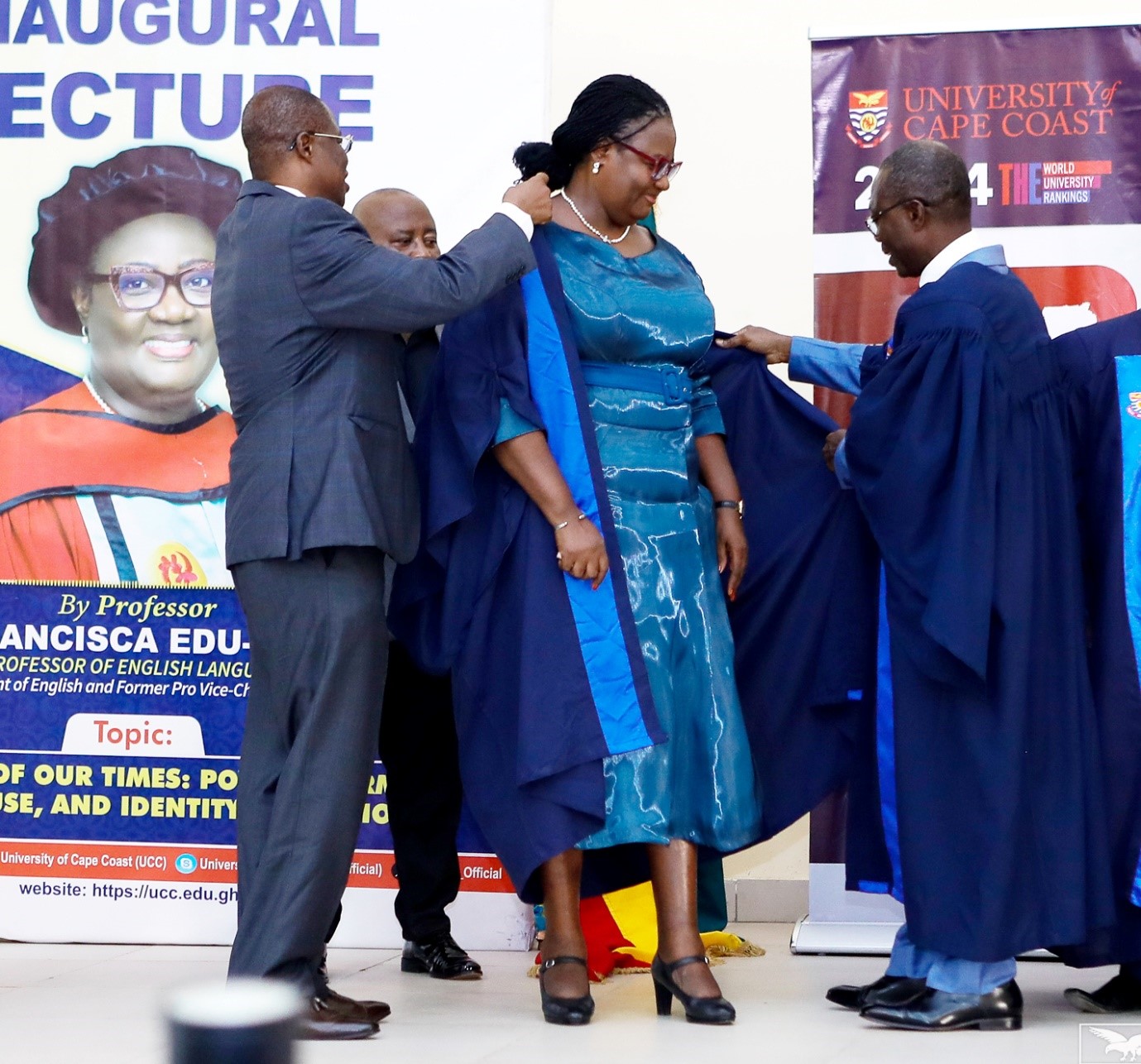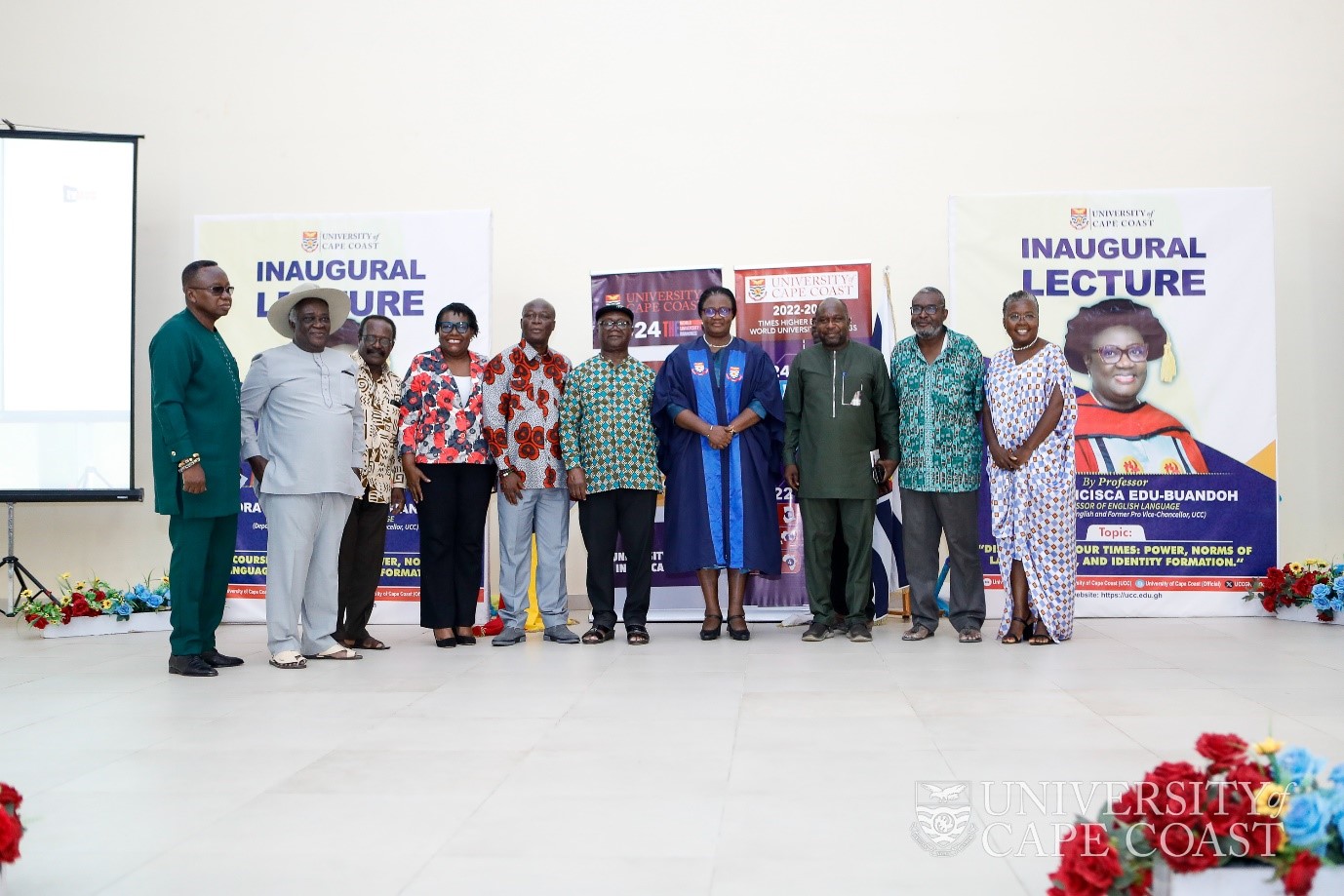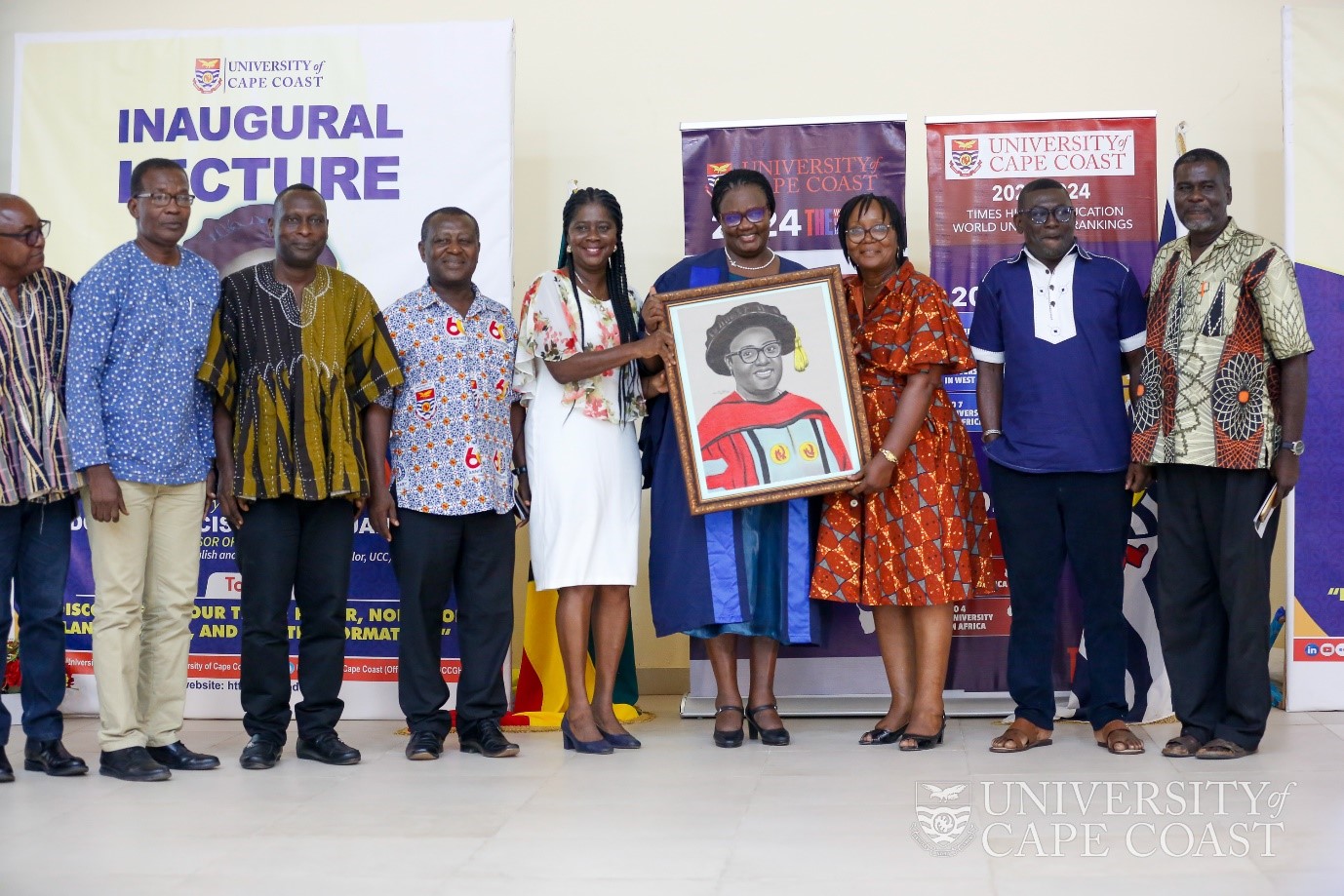A Professor of English at the University of Cape Coast (UCC), Prof. Dora Francisca Edu-Buandoh, has called for a change in Ghanaian parliamentary discourse.
According to her, discourses in Parliament have been characterised, in recent times, by obscenities, provocative or threatening language, personal attacks, and insults which sometimes cloud the discussion on the floor of Parliament.
Prof. Edu-Buandoh made these remarks while delivering her inaugural lecture on the topic, "Discourses of Our Times: Power, Norms of Language Use, and Identity Formation".
She bemoaned the fact that unparliamentary discourse had degenerated to the extent that the current Speaker of Parliament, Alban Sumana Bagbin, at a point had to employ unparliamentary language to caution the use of unparliamentary discourse in Parliament.
This was when the Speaker of Parliament was compelled to draw the attention of Parliamentarians to the fact that speaking on the floor of Parliament required some decorum.
Prof. Edu-Buandoh being robed by former VC-UCC, Prof. Ghartey Ampiah (L) and VC-UCC, Prof. Johnson Nyarko Boampong. Looking on is the Director of Public Affairs, Major Kofi Baah Bentum (rtd)
She quoted the Speaker of Parliament, who cautioned parliamentarians by likening their behavior to being "in the market or Chop bar."
"The language employed questioned their intellectual capacity, imputed falsehoods, deception, and even criminality to their personalities," she said.
To investigate how Parliamentarians adhere to language norms, she conducted a comprehensive study in 2020, uncovering approximately 73 instances of unsavory comments, tags, and labels used within the Parliament of Ghana.
According to her, discourse served as a powerful tool for those in positions of power to reflect, reinforce, and perpetuate power dynamics within society.
Within contemporary discourse, she indicated that inordinate power, manipulation, disrespect, a sense of entitlement, and control were prevalent themes.
Further, Prof. Edu-Buandoh urged society to pay meticulous attention to language norms as they play a pivotal role in shaping our collective national identity.
She emphasized the importance of upholding the laws of respect and courtesy, which were vital for proficient engagement in discourse and for nurturing a cohesive national identity.
Drawing upon her expertise in critical discourse analysis, Prof. Edu-Buandoh underscored the significant role that different discourse domains play in our lives.
"There's academic, scientific, business, political, and media discourse," she noted, asserting that each domain possessed its unique set of terms and communication patterns.
Prof. Edu-Buandoh highlighted the contextual nature of discourse and its profound impact on language proficiency.
"One is not a proficient user of the language when he or she does not consider how context-dependent discourse is," she remarked.
Expressing concern about the dangerous impact of discourse on the mind, she stated that "minds are largely controlled by discourse, and as such, the symbolic elites possessed the legitimate power to shape public opinion, control the narrative, and influence identity formation."
Prof. Edu-Buandoh in a shot with some members of the 1993 UCC Alumni Group
She cautioned against the political discourses of our times, which employed propaganda, misinformation, and disinformation to sway emotions and maintain control.
Prof. Dora Francisca Edu-Buandoh @ a glance:
Source: Documentation and Information Section-UCC




